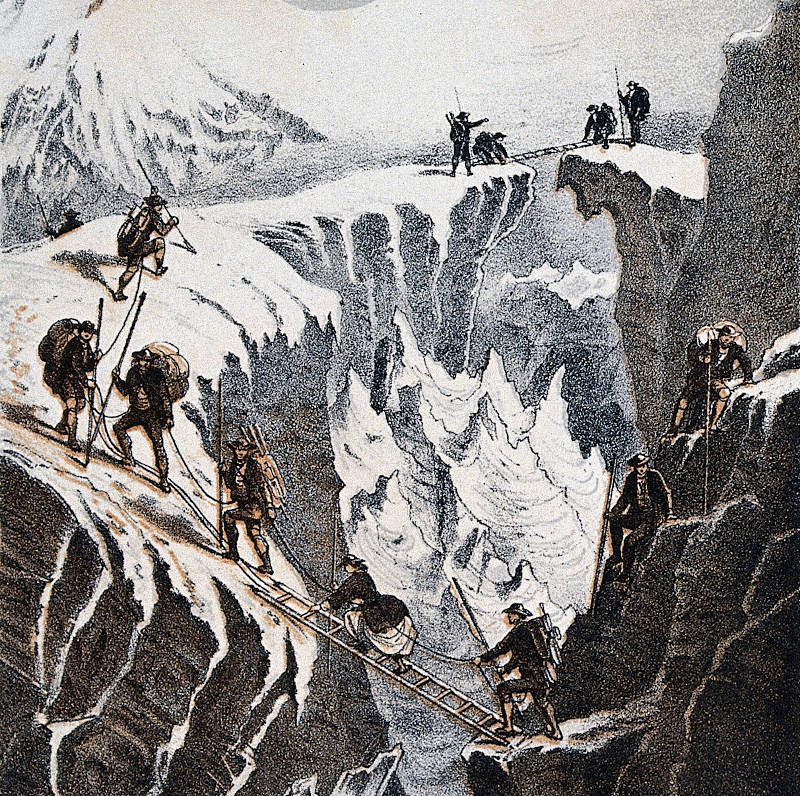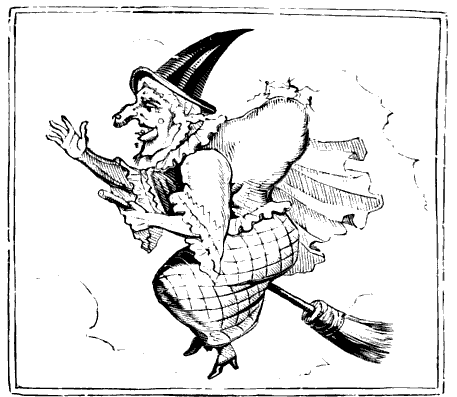The name of one chemical element appears as an unbroken string in the names of four other elements. What is the element, and what are the four?
Author: Greg Ross
Podcast Episode 345: Climbing Mont Blanc

In 1838, Frenchwoman Henriette d’Angeville set out to climb Mont Blanc, the highest mountain in the Alps, against the advice of nearly everyone she knew. In this week’s episode of the Futility Closet podcast we’ll follow d’Angeville up the mountain to fulfill what she called “a monomania of the heart.”
We’ll also escape Australia in a box and puzzle over a fixed game.
Streets and Order
This is interesting: USC urban planning professor Geoff Boeing examined the street networks of 100 world cities as a measure of their spatial logic and order.
The cities with the most ordered streets are Chicago, Miami, and Minneapolis; most disordered are Charlotte, São Paulo, and Rome.
“On average, US/Canadian study sites are far more grid-like than those elsewhere, exhibiting less entropy and circuity.”
(Geoff Boeing, “Urban Spatial Order: Street Network Orientation, Configuration, and Entropy,” Applied Network Science 4:1 [2019], 1-19.) (Via Ethan Mollick.)
Obstacle Course

In Aldiborontiphoskyphorniostikos, a Christmas party game from 1824, players had to take turns reading tongue-twisting passages as quickly as possible from a prepared list. Each passage represents a letter of the alphabet, and each builds on its forerunners. The worst is this:
TOBY PHILPOT sat tippling with UMPO, VUMPO, and WILLY WIDEMOUTH of Wolverhampton, when X and Y, two officers, brought in the culprit, while Saccharum Sweet Tooth said nothing, while Ramo Samee really swollowed a sword, while Sly Kia cried Quack! quack! quack! And turned into a duck, to escape from Poniatowsky, who said, To jail with the Juggler and Jade, as Mother Bunch on her broomstick cried, here’s a to-do! as Nicholas Hotch-potch said, Never were such times, as Muley Hassan, Mufti of Moldavia, put on his Barnacles, to see little Tweedle gobble them up, when Kia Khan Kreuse transmogrofied them into Pippins, because Snip’s wife cried, Illikipilliky! lass a-day! ’tis too bad to titter at a body, when Hamet el Mammet, the bottlenosed Barber of Balasora, laughed ha! ha! ha! on beholding the elephant spout mud over the ‘Prentice, who pricked his trunk with a needle, as Dicky Snip, the tailor, read the proclamation of Chrononhotonthologos, offering a thousand sequins for taking Bombardinian, Bashaw of three tails, who killed Aldiborontiphoskyphorniostikos.
A player who couldn’t pronounce a passage perfectly had to pay a penalty for each mistake. Here’s the whole list.
Stonework
A problem from the Leningrad Mathematical Olympiad: You have 32 stones, each of a different weight. How can you find the two heaviest in 35 weighings with an equal-arm balance?
Unquote
“Men are apt to mistake the strength of their feeling for the strength of their argument. The heated mind resents the chill touch and relentless scrutiny of logic.” — William Gladstone
“The knowledge of the theory of logic has no tendency whatever to make men good reasoners.” — Thomas Macaulay
Abstract Art
Italian artist Salvatore Garau has auctioned an invisible sculpture titled Io Sono (“I am”) for 15,000 euros. The buyer receives a certificate of authentication and agrees to display the nonexistent artwork in a private home in an unobstructed area 5 feet square.
Last month the artist displayed another immaterial sculpture, Buddha in Contemplation, near the entrance to the Gallerie d’Italia in Milan. The area of its location was marked off with tape.
Garau said that the titles of his works “activate” viewers’ imagination. “When I decide to ‘exhibit’ an immaterial sculpture in a given space, that space will concentrate a certain amount and density of thoughts at a precise point, creating a sculpture that, from my title, will only take the most varied forms. After all, don’t we shape a God we’ve never seen?”
(Thanks, Sharon.)
Preview
I was in a house I did not know, which had two storeys. It was ‘my house.’ I found myself in the upper storey, where there was a kind of salon furnished with fine old pieces in Rococo style. On the walls hung a number of precious old paintings. I wondered that this should be my house and thought ‘not bad.’ But then it occurred to me that I did not know what the lower floor looked like. Descending the stairs, I reached the ground floor. There everything was much older. I realised that this part of the house must date from about the fifteenth or sixteenth century. The furnishings were mediaeval, the floors were of red brick. Everywhere it was rather dark. I went from one room to another thinking ‘now I really must explore the whole house.’ I came upon a heavy door and opened it. Beyond it, I discovered a stone stairway that led down into a cellar. Descending again, I found myself in a beautifully vaulted room which looked exceedingly ancient. Examining the walls, I discovered layers of brick among the ordinary stone blocks, and chips of brick in the mortar. As soon as I saw this, I knew that the walls dated from Roman times. My interest by now was intense. I looked more closely at the floor. It was of stone slabs and in one of these I discovered a ring. When I pulled it, the stone slab lifted and again I saw a stairway of narrow stone steps leading down to the depths. These, too, I descended and entered a low cave cut into rock. Thick dust lay on the floor and in the dust were scattered bones and broken pottery, like remains of a primitive culture. I discovered two human skulls, obviously very old, and half disintegrated. Then I awoke.
Carl Jung had this dream in 1909, during a voyage to America with Freud. He took it to be an image of his psyche … but it also bears a striking resemblance to H.P. Lovecraft’s 1924 short story “The Rats in the Walls.”
Snapshot

Sometime in the late 5th century, a brutal mass killing took place at the settlement known as Sandby Borg on the Swedish island of Öland. It appears that the residents had just enough warning of the attack to hide their valuables. After the slaughter, the bodies left where they lay, the houses closed up, and the area abandoned and apparently taboo for years.
That makes it a valuable portrait of daily life in Scandinavia. “It’s compelling because people were killed inside the houses, and then the killers went out, locked the doors, and left,” said Swedish archaeologist Ulf Näsman. The attackers left even the livestock behind.
The reason for the attack is still a mystery. The usual signs of a battle or siege are missing — in fact the remains of the victims are oddly bare. “There is no dress, such as belt buckles [on the skeletons],” Näsman says. “Were they caught unawares at night? Maybe they were nude or in night dress and taken by surprise.”
And, strangely, two of the victims were found with sheep or goat teeth in their mouths. “It wasn’t enough to kill them and leave them in their houses,” says archaeologist Helena Victor, who directs the excavation. “It’s really, really ugly treatment.”
Conditions
A bizarre detail from Thomas Southcliffe Ashton and Joseph Sykes’ 1964 book The Coal Industry of the Eighteenth Century:
British miners often had to work in near-total darkness, as any flame might ignite methane gas.
So, in the more explosion-prone mines, “colliers sometimes tried to carry on their work by the feeble light of phosophorous and putrescent fish.”

